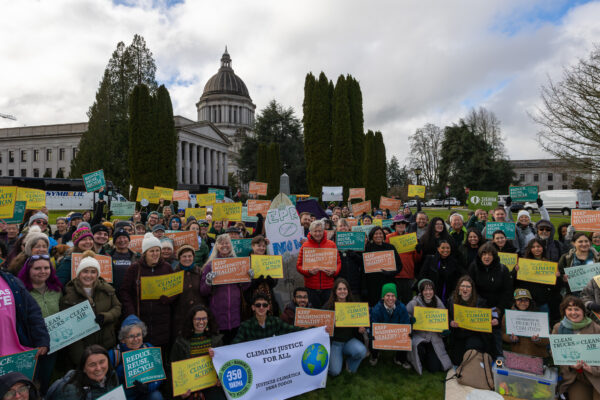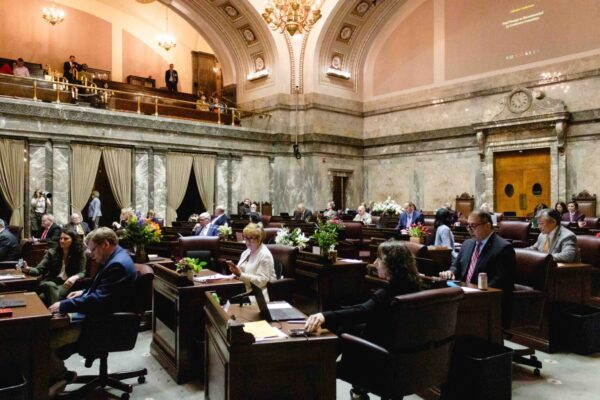The environmental community approached the Legislature with an ambitious and focused set of its four Priorities, and ultimately it achieved unprecedented success with passage of all four of the community’s priorities: Clean Air/Clean Fuels, Save our Sound, $100 Million for Wildlife and Recreation Program and Eliminating Toxic Flame Retardants.
The Priorities are the agreed upon top four proposals of leading groups in the state advocating reforms for the better health of our communities and the people who live there through improved protection of our land, air and water. By limiting the number of proposals to four, and choosing issues that connect with the general public, the Priorities have seen ever-increasing success since beginning in 2003.
“The Legislature has done great work for the environment this year. The success of the all four coalition priorities speaks volumes about the priorities in Olympia,” said Clifford Traisman, State Lobbyist for Washington Environmental Council and Washington Conservation Voters. “We continue to show how improved protections for the environment go hand in hand with a strong economy.”
“Doubling the funding for the Wildlife and Recreation Program will help provide a better future for people and wildlife all around the state through increased parks, trails, habitat and farmland conservation projects,” said Joanna Grist, director of the Washington Wildlife and Recreation Coalition.
KC Golden of Climate Solutions, one of the leading groups on the Clean Air – Clean Fuels proposal said, “Washington is turning a corner toward a smarter, cleaner energy future. We’re turning away from the dead-end of fossil fuel dependence and climate disruption. By passing the Clean Air Clean – Fuels Bill, the Legislature is offering Washington consumers and businesses more clean fuels and clean vehicles to help us make that turn.”
“This year the legislature took a big step toward the recovery of Puget Sound,” said Kathy Fletcher, executive director of People For Puget Sound. “An independent state agency will now be accountable for restoring the Sound to health by 2020. The next steps for the legislature will be to create the funding we need, and to take the specific actions necessary to save the Sound, including oil spill prevention and protecting our shorelines from damaging developments.”
And at Wednesday’s bill signing ceremony on the legislation to ban toxic flame retardants, Gregg Small of the Washington Toxics Coalition said, “Washington is the first state in the nation to ban toxic flame retardants and replace them with safer alternatives. This is a major victory for the health of our children and Puget Sound, and will likely lead to similar laws in other states.”
Overview of 2007 Priorities
The Priorities for a Healthy Washington are the agreed upon top four proposals of leading groups in the state advocating reforms for better health of our people, land, air and water.
Clean-Air/Clean Fuels legislation – will reduce global warming pollution and encourage in-state production of sustainable bio-fuels, helping build new jobs and a clean energy economy
Save Our Sound legislation – establishes a new agency to achieve strong recovery and protection goals, an independent science advisory committee, funding Puget Sound cleanup, and important accountability measures to make sure state funding delivers action and results.
$100 Million for Wildlife and Recreation Program appropriation – doubles the state’s appropriation to this highly competitive and “pork-free” program, funding 135 new state and local parks, protected shorelines and wildlife habitat, plus the state’s first ever funding for a farmland preservation program.
Eliminating Toxic Flame Retardants – will, for the first time in the nation, ban the use of these particularly toxic chemicals and replace them with safer alternatives that provide fire safety protection, while reducing risks to people and the environment.



